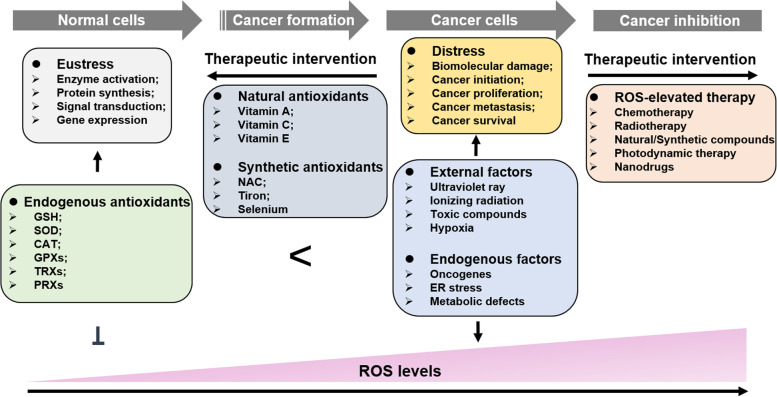Fig. 1.
The production and therapeutic potential of ROS in cancer. In normal cells, the endogenous antioxidant system is enough to counteract excessive ROS to maintain redox homeostasis which benefits enzyme activation, protein synthesis, signal transduction and gene expression. Nevertheless, when the redox balance is broken, accumulated ROS will damage biological molecules and render malignant transformation. Notably, further elevated ROS levels can prevent cancer development even cause cancer cell death. The dual roles of ROS in cancer development remind us of two opposite treatments - antioxidant and pro-oxidant therapy

